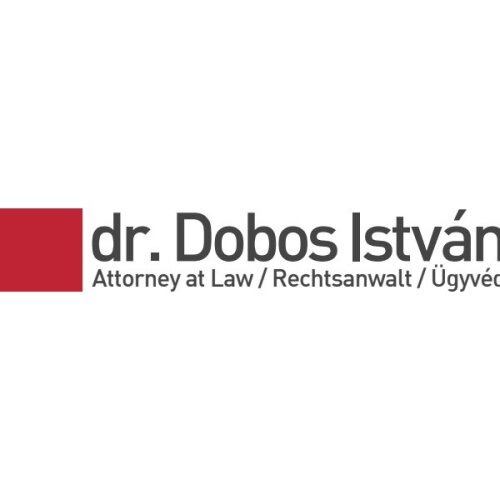Best Corporate Governance Lawyers in Hungary
Share your needs with us, get contacted by law firms.
Free. Takes 2 min.
Or refine your search by selecting a city:
List of the best lawyers in Hungary
About Corporate Governance Law in Hungary
Corporate governance in Hungary refers to the system of rules, practices, and processes by which companies are directed and controlled. It mainly focuses on balancing the interests of a company’s stakeholders, which include shareholders, management, customers, suppliers, financiers, government, and the community. Hungarian corporate governance is shaped by both local regulations and the influence of the European Union framework. The purpose is to ensure that companies operate efficiently, transparently, and ethically, thus fostering investor confidence and sustainable business growth. The legal framework outlines how companies should be organized, managed, and supervised, emphasizing accountability and fairness.
Why You May Need a Lawyer
Navigating corporate governance issues can be complex, and legal advice is often necessary in several situations, such as:
- Establishing new companies, drafting articles of association, and internal rules
- Ensuring compliance with Hungarian and EU regulations
- Structuring boards of directors and supervisory boards effectively
- Advising on shareholders’ rights and dispute resolution mechanisms
- Handling mergers, acquisitions, or restructures
- Defending against allegations of non-compliance or breaches of directors’ duties
- Dissolving or winding up a company
- Implementing and reviewing internal control systems, ethics codes, and whistleblowing procedures
- Responding to investigations or audits by local authorities
A specialist corporate governance lawyer can help minimize risks, ensure lawful operations, and protect the interests of both the company and its stakeholders.
Local Laws Overview
Hungarian corporate governance is primarily regulated by the Civil Code and the Act V of 2006 on Public Company Information, Company Registration, and Winding up Proceedings. Hungary also follows certain EU directives regarding transparency, reporting, and shareholders’ rights. Key aspects include:
- Company Forms: The most common company forms are private limited liability companies (Kft.) and companies limited by shares (Rt.). Each form has specific governance requirements.
- Corporate Bodies: Companies must establish mandatory bodies, which often include a managing director or board of directors, and for larger companies, a supervisory board.
- Shareholders’ Rights: The law protects minority shareholders and outlines procedures for general meetings, voting rights, and dividend distribution.
- Director’s Duties: Management must act in the company’s best interest, avoid conflicts of interest, and comply with accounting and reporting obligations.
- Transparency: Listed companies must comply with strict disclosure, reporting, and audit requirements. Regular publication of financial statements and corporate information is mandatory.
- Supervisory Mechanisms: Internal audit and supervisory boards may be required, especially in larger entities or those operating in sensitive sectors.
- Whistleblowing and Ethics: Companies are encouraged to implement codes of ethics and whistleblowing procedures, though certain companies have legal obligations to do so.
Frequently Asked Questions
What is the main law governing corporate governance in Hungary?
The main legal sources are the Civil Code and specific acts such as Act V of 2006 on Company Registration and CXX of 2001 on the Capital Market for listed companies. EU regulations also apply.
What forms of corporate entities are recognized in Hungary?
The most common forms are the Limited Liability Company (Kft.), Company Limited by Shares (Rt. or Zrt./Nyrt.), General Partnership (Kkt.), and Limited Partnership (Bt.).
What are the main organs of a Hungarian company?
Generally, companies must have a managing director or a board of directors, and sometimes a supervisory board and auditor depending on the size and type of company.
Is a supervisory board mandatory for all companies?
No, a supervisory board is mandatory for public companies and certain private companies, especially if required by the articles of association or by law, such as large employers.
What are the key duties of directors under Hungarian law?
Directors must exercise due care, act in the company’s best interest, maintain confidentiality, avoid conflicts of interest, and comply with statutory financial and reporting duties.
How are shareholder rights protected?
Shareholders have rights to participate in general meetings, vote, receive dividends, and access information. The law provides mechanisms for minority shareholder protection.
What corporate governance rules apply to listed companies?
Listed companies must comply with stricter rules on transparency, disclosure, corporate structure, and reporting. The Budapest Stock Exchange Corporate Governance Recommendations also apply to Nyrt. (public companies).
Are there requirements for internal policies or codes of ethics?
While not mandatory for all companies, internal policies, codes of ethics, and whistleblowing systems are recommended and sometimes required. They are standard for listed and larger companies.
How are disputes within corporate governance usually resolved?
Disputes can be resolved by internal mechanisms, negotiation, or via the Hungarian courts. Some companies may opt for arbitration under their articles.
What happens if a company breaches corporate governance regulations?
Consequences include fines, civil or criminal liability for directors, annulment of company decisions, and even company dissolution in severe cases.
Additional Resources
Several helpful groups and authorities can provide further guidance:
- Hungarian Chamber of Commerce and Industry (MKIK): Offers guidance for businesses and foreign investors.
- Budapest Stock Exchange: Publishes corporate governance recommendations for listed companies.
- Hungarian Financial Supervisory Authority (MNB): Regulates financial markets and public companies.
- Ministry of Justice: Responsible for business laws and company registration.
- Hungarian Bar Association: Directory of licensed lawyers and legal specialists in corporate governance.
Next Steps
If you require legal assistance in corporate governance in Hungary, consider the following actions:
- Review your company’s current governance structure and identify areas of concern or uncertainty.
- Gather all relevant documentation, including articles of association, internal policies, and board resolutions.
- Contact a specialized corporate governance lawyer with experience in Hungarian corporate law.
- Schedule a consultation to evaluate your needs, whether it is compliance, restructuring, dispute resolution, or drafting governance documents.
- Maintain ongoing communication with your legal advisor to ensure continued compliance as laws and best practices evolve.
Taking proactive legal steps helps protect your company’s interests, minimizes legal risks, and ensures long-term corporate success in Hungary.
Lawzana helps you find the best lawyers and law firms in Hungary through a curated and pre-screened list of qualified legal professionals. Our platform offers rankings and detailed profiles of attorneys and law firms, allowing you to compare based on practice areas, including Corporate Governance, experience, and client feedback.
Each profile includes a description of the firm's areas of practice, client reviews, team members and partners, year of establishment, spoken languages, office locations, contact information, social media presence, and any published articles or resources. Most firms on our platform speak English and are experienced in both local and international legal matters.
Get a quote from top-rated law firms in Hungary — quickly, securely, and without unnecessary hassle.
Disclaimer:
The information provided on this page is for general informational purposes only and does not constitute legal advice. While we strive to ensure the accuracy and relevance of the content, legal information may change over time, and interpretations of the law can vary. You should always consult with a qualified legal professional for advice specific to your situation.
We disclaim all liability for actions taken or not taken based on the content of this page. If you believe any information is incorrect or outdated, please contact us, and we will review and update it where appropriate.
Browse corporate governance law firms by city in Hungary
Refine your search by selecting a city.

















